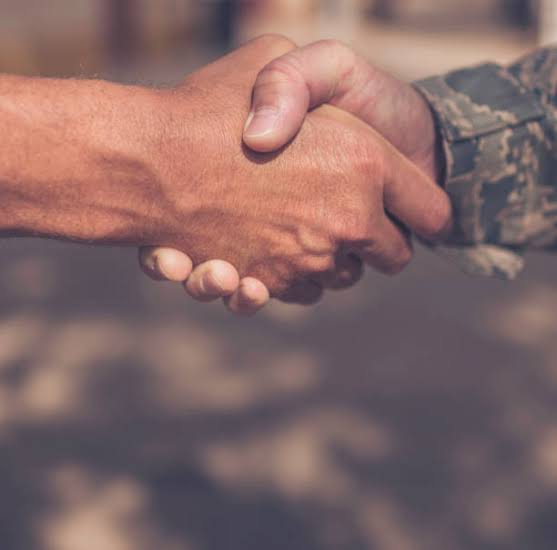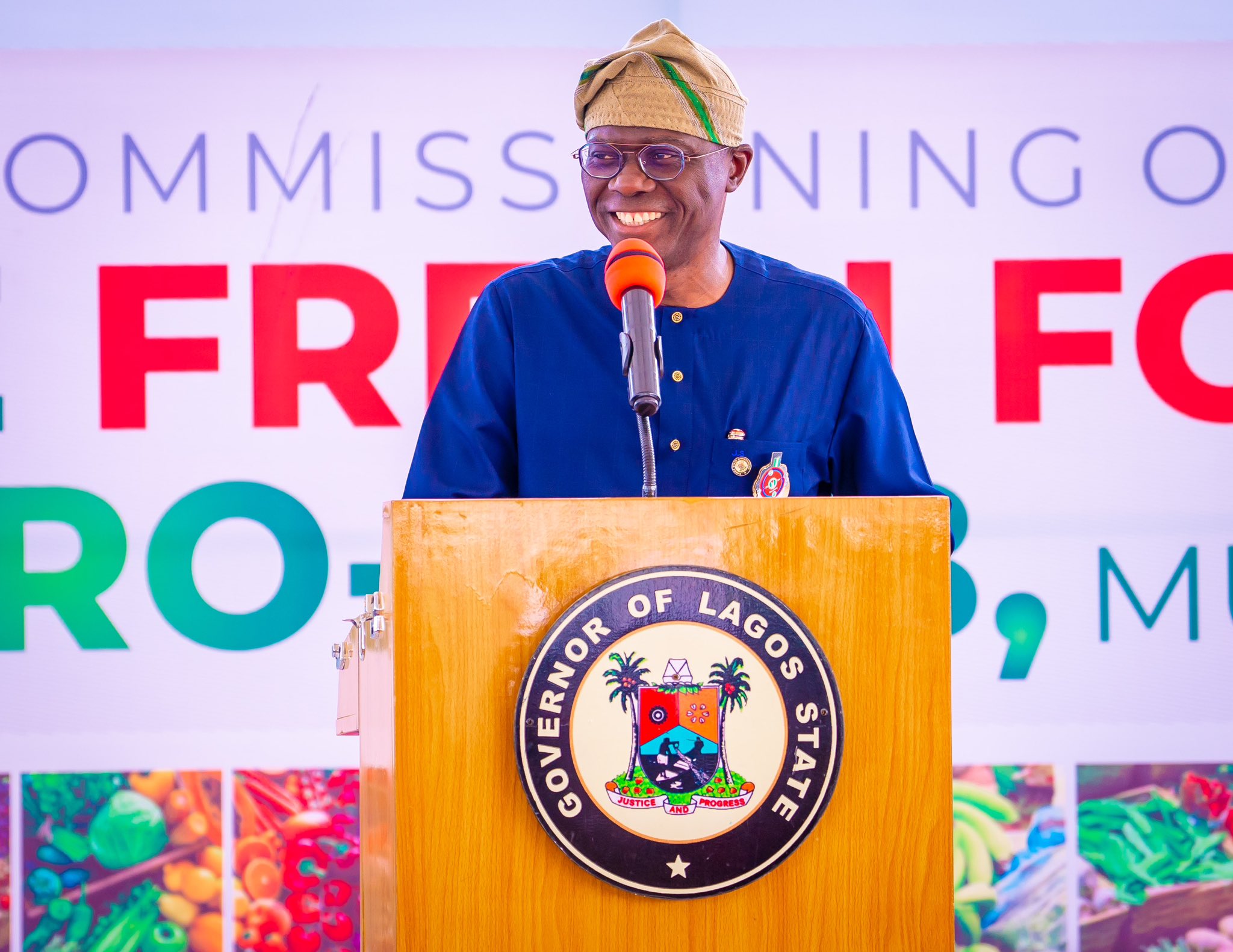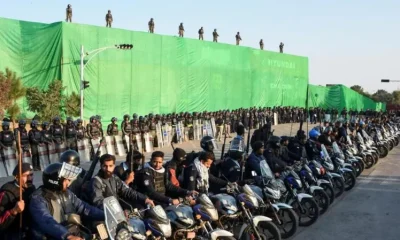Featured
Opinion!!! The Governor And The Corporal

- By Femi Olugbile
An interesting confrontation took place on a Lagos street the other day. The Governor of Lagos accosted a man riding in the wrong direction on an okada. The man explained that he was a soldier from a nearby barracks, obviously expecting that to count for something. The Governor, furious, ordered his arrest and the confiscation of his motorbike.
EDITOR’S PICKS
-
Bye-Election: Ani Emerges APC Candidate To Fill Umahi’s Senate Seat
-
Bayelsa Government Investigates ‘Marriage’ Between 4-Year-Old And 54-Year-Old Man
-
Gunmen Abduct Ex-Imo Traditional Council Chair
Soon after, all hell broke loose on the internet. One man who claimed to be a soldier battling Boko Haram in the Northeast proclaimed that the Governor was out of order for humiliating a soldier before ‘bloody civilians’. No Governor would have dared give such an order in the Northeast, he averred. The only authority he recognised as a soldier was the Military Police, who could lock him up in the Guard Room, if they wished. In his narrative, the okada rider had risked his life fighting for Nigeria. He had ‘iron in his arm’ – presumably implying an implant for a fractured bone. His outrage was about the temerity of a ‘bloody civilian’, no matter how high, purporting to discipline a soldier, no matter how lowly.
The most dramatic of all the ‘military’ response came from a man who described himself as a ‘senior military officer’ and alleged that the errant soldier had once served under him. In a message replete with insult and diatribe, he painted the ‘young man’ as a victim who was merely carrying out an errand. His message was concluded on a note of dire warning to the Governor.
Several voices have since been raised to cast doubt on whether the ‘Senior Officer’ was indeed a member of the Armed Forces of Nigeria or merely an agent provocateur out to score a cheap political point, given the scurrilous nature of his attack.

Lagos State Governor, Babajide Sanwo-Olu,
The whole incident has raised real issues, many of which have their origins in the long years of military rule the country endured historically, and their corrosive psychological influence. A sense of ‘military exceptionalism’ has developed which recognises the right of people in uniform to define and impose the law but absolves them from any need to obey that law.
The story of Nigeria’s descent into a normalisation of this bizarre ‘exceptionalism’ is reflected in the changing lyrics of Fela Anikulapo Kuti – from his initial awe of the military –
‘To ba l’agidi
Soja lo ma se e ro…
(‘Soldiers will beat you to a pulp if you show attitude…’)
- to his feisty condemnation of their excesses:
‘…Uniform na cloth, na tailor de sew am..’
Wole Soyinka once told the story of an incident early in the military era when the playwright Ola Rotimi left the line at a military checkpoint to ask a question, only to be accosted by a koboko-wielding soldier who instructed him to step out of his car. The soldier then proceeded whip the Professor several times with his horsewhip.
During the Buhari-Idiagbon military regime, there was a song and dance about the need to apply drastic remedy to pervasive indiscipline in society. WAI– War Against Indiscipline, was launched, with stern-faced soldiers detailed to ensure people stood in queues and were generally orderly in public. Citizens who defaulted were whipped or made to frog-jump on the tarmac. Some well-meaning people were happy that, for a change, Nigerians were obeying the law. But anyone with knowledge of psychology could have predicted the ‘sanity’ would not last, because regimentation without people imbibing the values in question could only be transient. There was another reason why WAI was doomed to failure. The soldiers – the enforcers of the order, were exempted from the rules, and could drive straight to the top of the queue at the filling station, for instance. It was a case of ‘You cannot give what you do not have’.
From the days of Brigadier Mobolaji Johnson in Lagos, there have been periodic riots as soldiers tried to enforce their ‘exceptionalism’. Often, people, including the Police, played safe and let these acts go. But sometimes, civilians, pushed to the wall, resisted the bullying.
That exceptionalism is still on view daily today, as cars carrying military officers brazenly travel on the wrong side of the road to avoid the traffic tailback on Lekki Expressway and elsewhere.
The convention, in democracies around the world, is that uniformed forces – soldiers, the police and others, reflect the best values of their society, and are subordinated to civilian authority. The officer cadres show this in their own behaviour, and their juniors fall into line. Anybody who has met American soldiers, including injured ones, at airports and other public places, can confirm that they are very disciplined and low-keyed, and are generally treated with love and respect by the public, not because they demand it, but because they earn it by their demeanour. Soldiering is, after all, a brave and dangerous profession.
There is something wrong if members of the ‘disciplined forces’ claim exemption from the civil law that binds everybody, instead of being exemplars of compliance. There is no point in wringing hands and saying the obvious – that most Nigerian soldiers are officers and gentlemen of unimpeachable character and behaviour. Those miscreants who sully the image of the majority need to be brought to book. Officers have a duty to dignify their uniform, and not take it as licence to bully. The rank and file need to be trained by their superiors on civic compliance. The abnormal social psychology developed over decades of military rule should no longer be ‘rationalised’.
FURTHER READING
-
CBT WASSCE Will Cause Mass Failure In The North – Arewa Youth Tells WAEC
-
Confusion As Senate Denies Receiving Rice Worth N200m As Palliatives
-
Market Day Massacre: 6 Traders Dead As Gunmen Attack Convoy In Katsina
The Governor was perfectly right in accosting the wrongdoer. Perhaps arresting the culprit instead of having him booked and his bike confiscated as prescribed by legislation was dramatic, but it was clearly to serve as deterrent. The ‘senior officer’, if indeed he was one, who unleashed the foul-mouthed diatribe on video should be duly identified and disciplined. Nigeria’s gallant men in uniform need to fall into step with the best international prescriptions of their noble calling.
Click to watch our video of the week
Advertise or Publish a Story on EkoHot Blog:
Kindly contact us at [email protected]. Breaking stories should be sent to the above email and substantiated with pictorial evidence.
Citizen journalists will receive a token as data incentive.
Call or Whatsapp: 0803 561 7233, 0703 414 5611

















